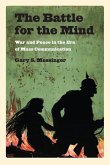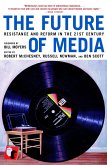A media scholar critically examines how US establishment media ran interference for Israel’s genocide in Gaza, with reporting that called the Flour Massacre “aid-related deaths,” and the Tent Massacre a “tragic mistake.” Over eight months, media coverage aligned with Israeli military narratives, condoning Israeli war crimes and the massacres of Palestinians as the world responded in outrage. The Complicit Lens scrutinizes US media's portrayal of Israel’s war on Gaza post-October 7, 2023 Hamas attacks, contrasting it with social media reports and international news coverage. It reveals how reporting mystified Israeli bombings, used passive language to deflect blame, and repeated Israeli talking points. The analysis identifies consistent war tropes and atrocity propaganda—beheaded babies and mass rape—used to justify Israeli actions and obscure culpability. Israeli violence was presented as defensive and justified, either by the October 7 attacks, or by claims that Israel was targeting Hamas fighters and commanders not civilians. Later reporting included false claims that war crimes and massacres were mistakes or accidents. The book documents the targeted killings of journalists and aid workers, underreported in US media, and critiques the editorial censorship that avoided terms like "genocide" and "massacre" for Palestinian deaths. As global protests against the Gaza genocide rose, the book also analyzes the biased media portrayal of these uprisings, particularly those led by young people and Jewish organizations. Examining specific incidents and language, the book exposes how media coverage facilitated the ongoing genocide in Gaza.
Hinweis: Dieser Artikel kann nur an eine deutsche Lieferadresse ausgeliefert werden.
Hinweis: Dieser Artikel kann nur an eine deutsche Lieferadresse ausgeliefert werden.








